Unlocking the secrets of Puget Sound sea slugs
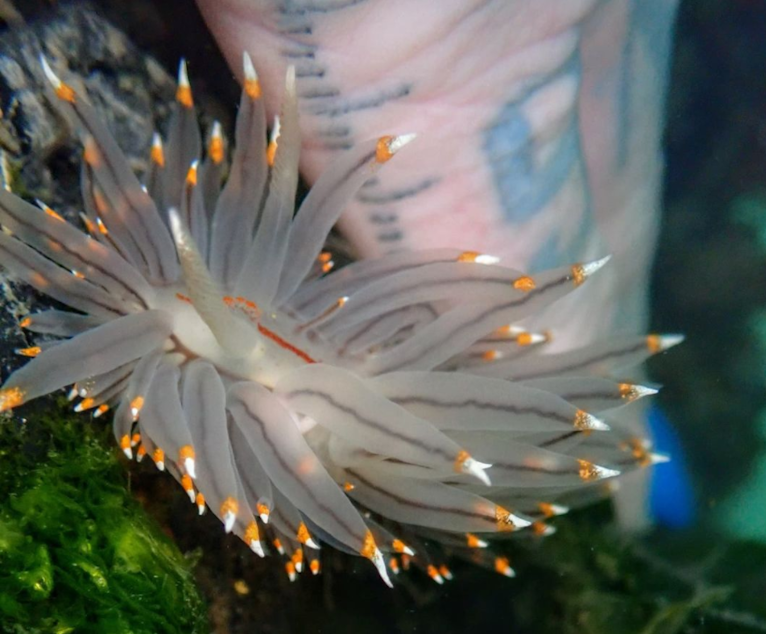
There is no shortage of breathtaking wildlife in the Puget Sound region. The orca is, of course, our most famous mascot, but we also have a special love for our Dungeness crabs, octopuses, and tide pool critters.
Without a boat or special gear, a lot of these creatures remain out of our everyday reach. But there is one little guy you can find most any day on your neighborhood dock: sea slugs, also known by their scientific name, nudibranchs.
Some sea slugs can measure smaller than your fingernail, which means they're easy to miss in favor of our more flashy sea creatures. And in fact, because sea slugs are so unnoticeable, there isn't much that we really know about them.
Luan Roberts' obsession with nudibranchs first started on a trip to the San Francisco Bay Area. She was already an avid explorer of our shorelines, and was working on connecting people to their local environment through tide pooling.
"As with most creatures at low tide they're kind of droopy, and they're not really in their best state," Roberts said. "They just look like little snotty things, and you don't really pay them much attention."
It wasn't until she began seeing photos of nudibranchs under the water, up close, that their vibrancy captured Roberts' attention. And there were other benefits with searching for sea slugs -- she wouldn't have to time her travels around tide tables. She could go to any marina in Puget Sound and basically guarantee a slug slighting.
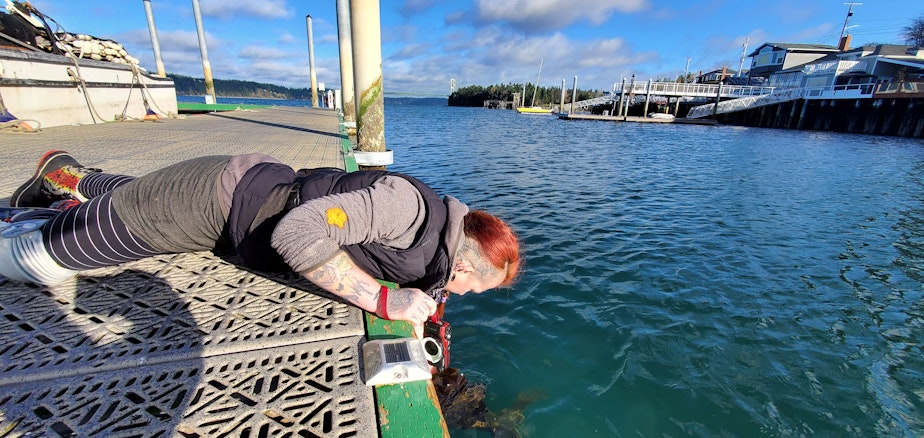
Sponsored
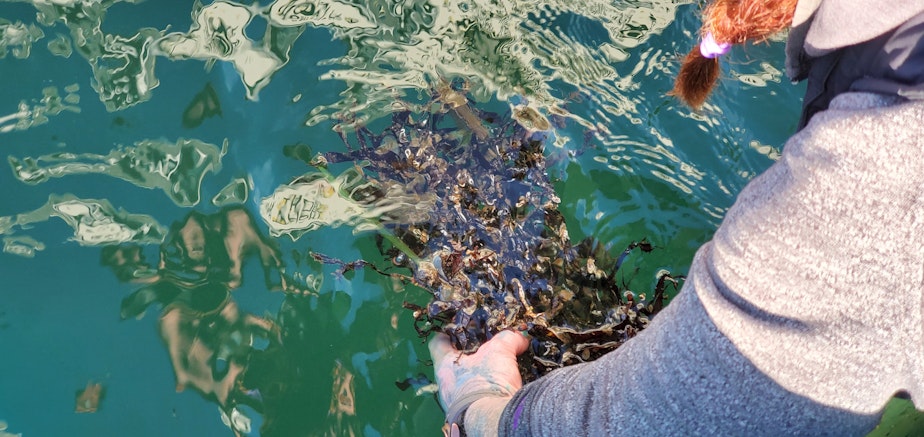
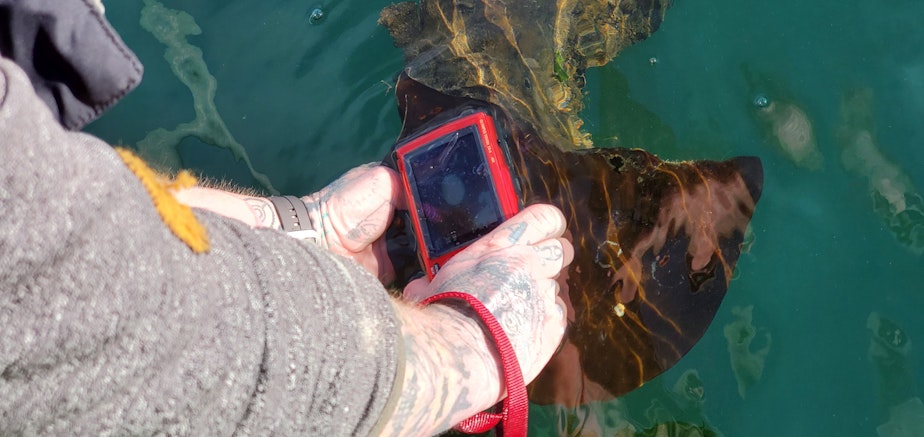
Roberts is part of a wave of community members taking up the practice of "dock fouling."
Technically speaking, dock fouling refers to the flora and fauna attached to boats and other marina structures, which over long spans of time actually cause damage to marinas (that's where the word "fouling" comes from). But it's come to have a secondary meaning as people like Roberts crawl across docks on hands and knees to spot and catalog a variety of sea creatures. Sea slugs have a special affinity for long strands of kelp, and you can also find them on submerged nets.
So what is life as a sea slug like? Short and sedentary.
Sponsored
"They basically just eat and reproduce," Roberts said. "All nudibranchs are predators, so they're feeding on other live animals. For the most part that's anemones, and bryozoans, and other stationary creatures."
And docks aren't the only other place to find sea slugs. Karin Fletcher regularly scuba dives for nudibranchs in Rich Passage, which is the equivalent of her front yard. She's been searching for sea slugs over the past 12 years and has identified just over 62 species, some of which hadn't been discovered yet.
"Things seem to be curious about you," Fletcher said. "The fish will swim up to you, the sea lions will swim up to you. They want to know what alien is in their world. And it is an alien world. It's so different from the top side that it's like going to another planet, just right out the front door."
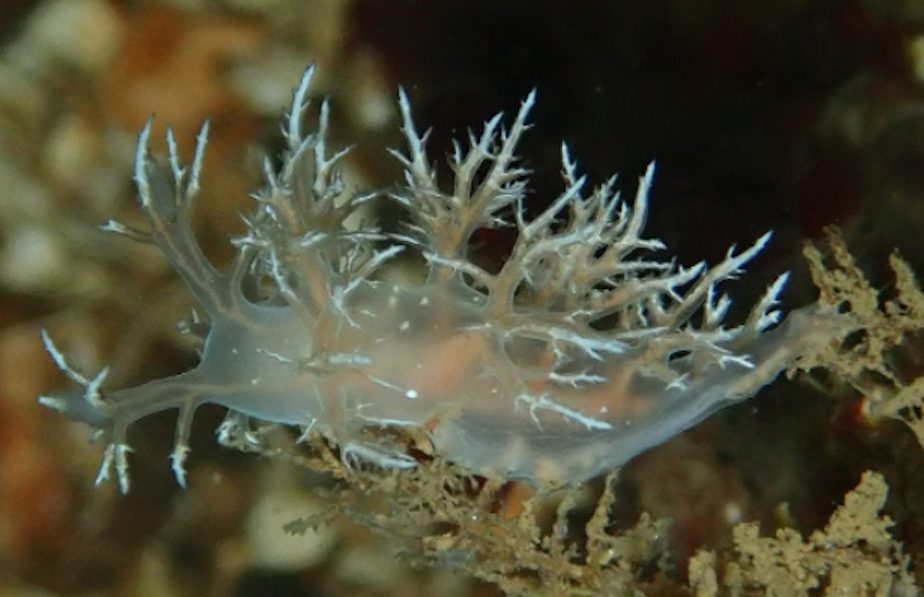
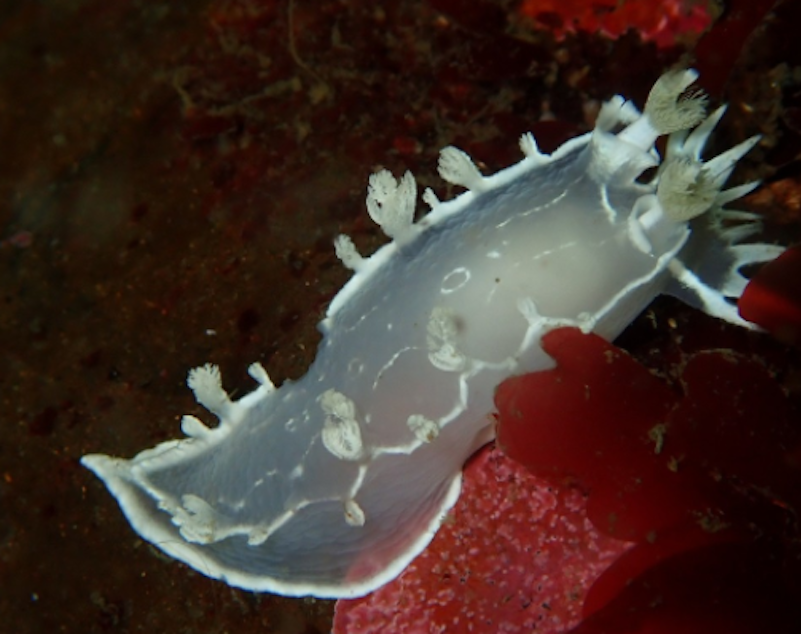
Sponsored
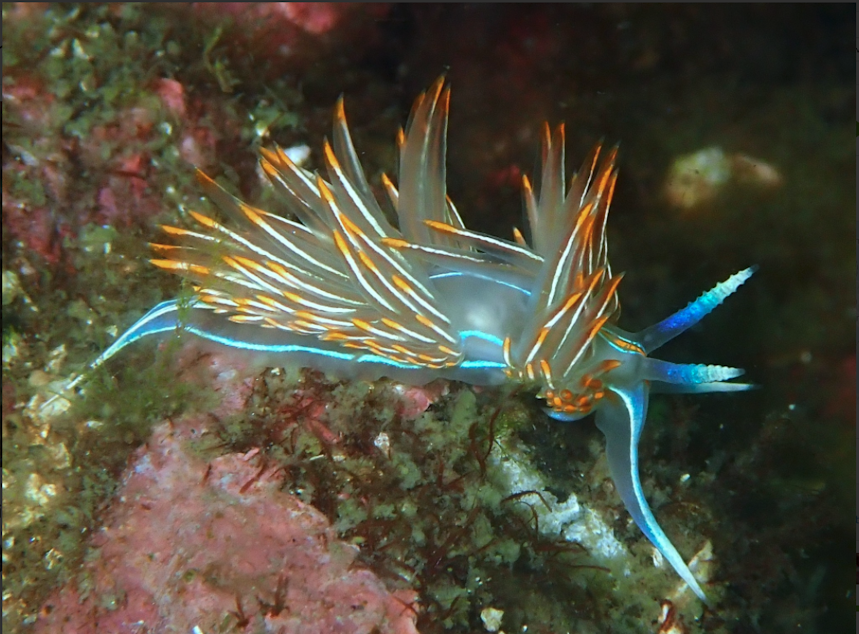
Both Fletcher and Roberts have brought new attention to sea slugs, which have largely evaded recognition due to their size and lack of economic value. This past fall, Roberts organized a "docktober" event to bring people to their local marina, where she taught new enthusiasts how to safely observe dock fauna, and her nudibranch-themed instagram is currently thriving.
But there is some concern with how growing popularity might impact the health of nudibranchs, especially as the popularity of tide pooling on instagram has attracted foragers and decimated some ecosystems.
"Dock fouling is a bit different in that you're going to place which is already sort of a human constructed environment," Roberts said. "You don't have much control over that environment because the marina owner could decide to scrape the side of the docks. Those organisms are only there at the invitation of the people who control that area."
Roberts said that the community has talked about creating a code of ethics for dock fouling, so new enthusiasts can be respectful of all who call our marinas home — slugs or otherwise. But the community is all in on bringing more people to this unique corner of our local aquatic world, and it's up to community scientists to continue unlocking new sea slug secrets.
Sponsored
"I think that's what makes them special. They're just these special things that don't really have any value to anyone except for the people who can appreciate them for what they are."




